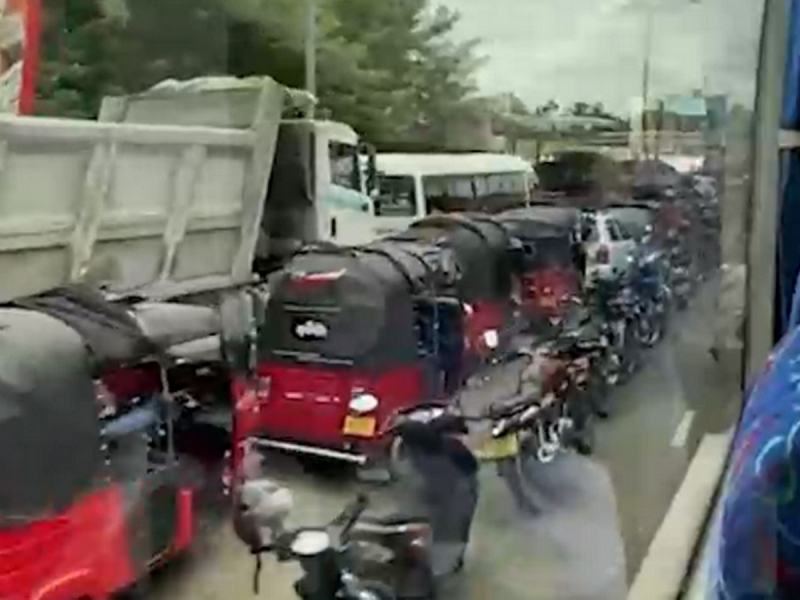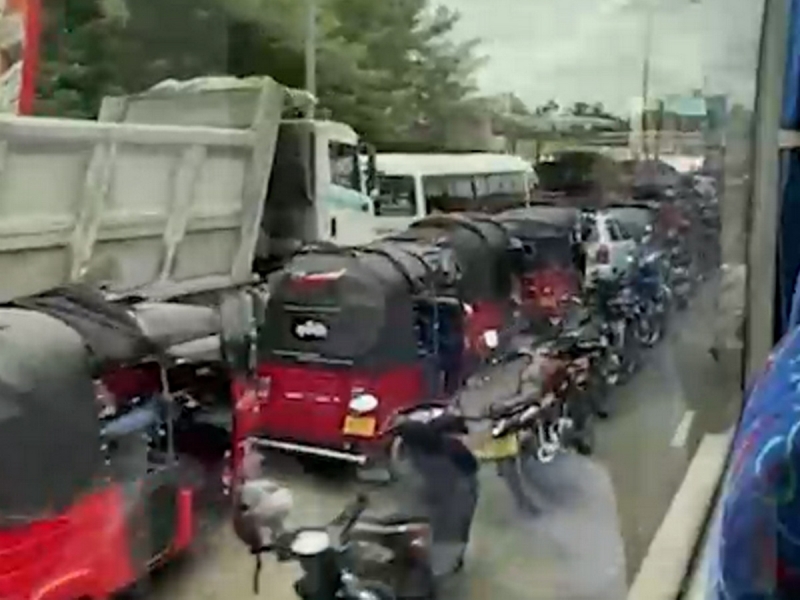
A local driver reported that he had been standing in line for four days and hardly slept.
Sri Lanka is going through a severe crisis due to default. Local residents complain about the lack of fuel, which is left for a few days. Others do not have enough money for food, because entire sectors of the economy have closed in the country.
According to one of the local drivers quoted by the TG channel Mash, he stood in line for gasoline for four days, while “did not sleep and did not eat properly ”.
Many kilometers of traffic jams lined up in different localities, while, as it became known to the media, starting in July, only emergency and special services vehicles will receive fuel.
It has already been reported that schools in Sri Lanka will be closed, and officials will work remotely from home.
The fuel crisis has also affected tourists, who, along with everyone else, have to stand in queues.
If earlier they were refueled without a queue, now the rules have changed, and it is unclear how you can move around the recent green tourist paradise.
As Forbes clarifies, back in April it became known that the country officially declared default. The shortage of gasoline began back then, and protests have not stopped in Sri Lanka since May.
In the spring, the government headed by the Prime Minister resigned. Mass protests intensified when the prospect of famine loomed. Now the authorities have lost the support of even former allies.
The country’s national debt is $35 billion, of which $7 billion is due to be repaid this year. Inflation, according to the local Central Bank, will be 40% by the end of the year.
In turn, the World Bank refuses to provide assistance until Sri Lanka implements an “adequate macroeconomic policy”.
The amount of aid that can be given to the country will be enough only for medicines, school meals and assistance to poor families and farmers.
Earlier, as the Guardian reported, experts talked about a default in which 74 low-income countries of the world could find themselves. They believe that the reason is the post-pandemic crisis and the debts accumulated during isolation.
In turn, JPMorgan Chase calculated that the consequences of Russia’s own actions in Ukraine and the rise in loan prices will lead to the default of 10% of developing countries.
Earlier, Topnews wrote that the Sri Lankan court banned the Aeroflot plane from leaving the country.
Join our VK group to keep up to date with events in Russia and the world

